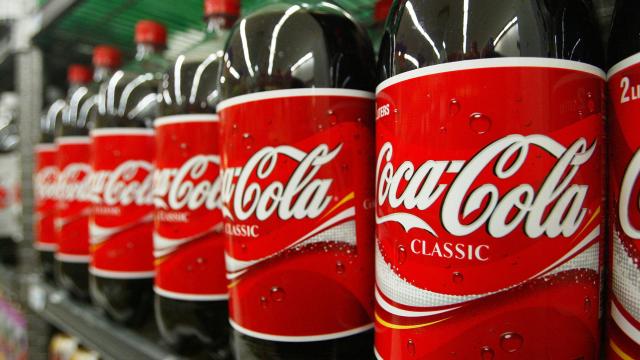Public concern about the climate and plastic crises is surging, and more and more brands are developing more sustainable business practices to cash in on said concern. But not Coca-Cola, which is doubling down and blaming consumers for its choice.
At the World Economic Forum in Davos, Switzerland, Coke’s sustainability chief said that it will keep selling its products in single-use plastic, because people want it. That logic seems off. I’m pretty sure suppliers have some impact on demand, but what do I know, I’m not an economist.
Coca-Cola produces some 3.3 million U.S. tons of plastic packaging per year, the equivalent of roughly 600,000 African elephants. Last year, Coca-Cola was named the most polluting brand for the second year in a row in an audit led by the Break Free From Plastic coalition.
Plastic is creating global crises. Its production and disposal both release hundreds of millions of tons of greenhouse gases, which warm the climate and threaten public health. It’s wreaking havoc on the world’s waterways, too”every minute, the equivalent of one dump truckload of plastic gets into the ocean, where it kills wildlife, carries diseases, and releases a fuckload of cancer-causing pollutants. That includes Coke bottles”in their audit last year, Break Free From Plastic found that Coca-Cola was responsible for 11,732 pieces of plastic litter found in 37 countries on four continents.
“Coke products are polluting the land and the oceans worldwide,” Judith Enck, former Environmental Protection Agency regional administrator and founder of Beyond Plastics, told Earther in an email.
[referenced url=” thumb=” title=” excerpt=”]
But Coca-Cola says they need to keep producing all that plastic because consumers just need that sweet, resealable, plastic packaging. “Business won’t be in business if we don’t accommodate consumers,” Bea Pere, zCoke’s head of sustainability and public affairs, said at Davos.
Here’s the thing, though: I’m pretty sure that’s bullshit. Studies show that people are actually leading plastic manufacturer, can take on their plastic problem but Coke can’t?
“Many consumers understand the urgent need to reduce plastic pollution and Coca-Cola knows this,” said Enck.
The company isn’t totally ignoring these trends. Last year, Coke also committed to cut down on plastic pollution by selling aluminium water containers. Aluminium does have a higher global recycling rate than plastic, but it’s super energy-intensive to produce and has a higher carbon footprint than plastic.
By 2030, the corporation has also pledged to use a minimum of 50 per cent recycled material in its packaging and collect and recycle the equivalent of each bottle and can it sells. But behind the scenes, the Intercept found that Coke has been fighting bottle bills and container deposit laws, which would hold the company accountable for its plastic waste.
“Other than bottle bills, there are no laws on the books to require them to take responsibility for their products after they are sold,” said Enck.
Without deposit laws, Coke’s plan seems unrealistic, especially because global recycling trends aren’t on their side. Under 10 per cent of all plastics that have ever been thrown away have actually been recycled, and since China stopped accepting much of the world’s recyclable material a couple years ago, that rate could drop even lower. All told, millions of tons of plastic could have nowhere to go by 2030.
“Rather than showing leadership on the issue of plastic pollution, [Coca-Cola] is doubling down on plastics and recycling because plastic is cheap and recycling puts the onus on us instead of the company,” Perry Wheeler, a senior communications specialist at Greenpeace, told Earther. “Coca-Cola would love to keep plastic alive and well because its business model is centered around it, and shifting in a new direction will require the company to take full responsibility for the enormous social and environmental impact it is having.”
As the oil industry feels the pressure of global campaigns to stop using fossil-based energy, they’re focusing on expanding plastic production instead. If growth trends continue, plastic will account for 20 per cent of the world’s oil consumption by 2050. Conservative predictions show that plastic production and incineration will produce 300 coal plants-worth of greenhouses gases by 2030. By 2050, that pollution output could double.
If companies like Coca-Cola would stop using plastic and instead transition away from single-use materials altogether, that would put a massive wrench in the fossil fuel industry’s plan. But again, they can’t! Because of, uh, “consumers.” Yeah right.
